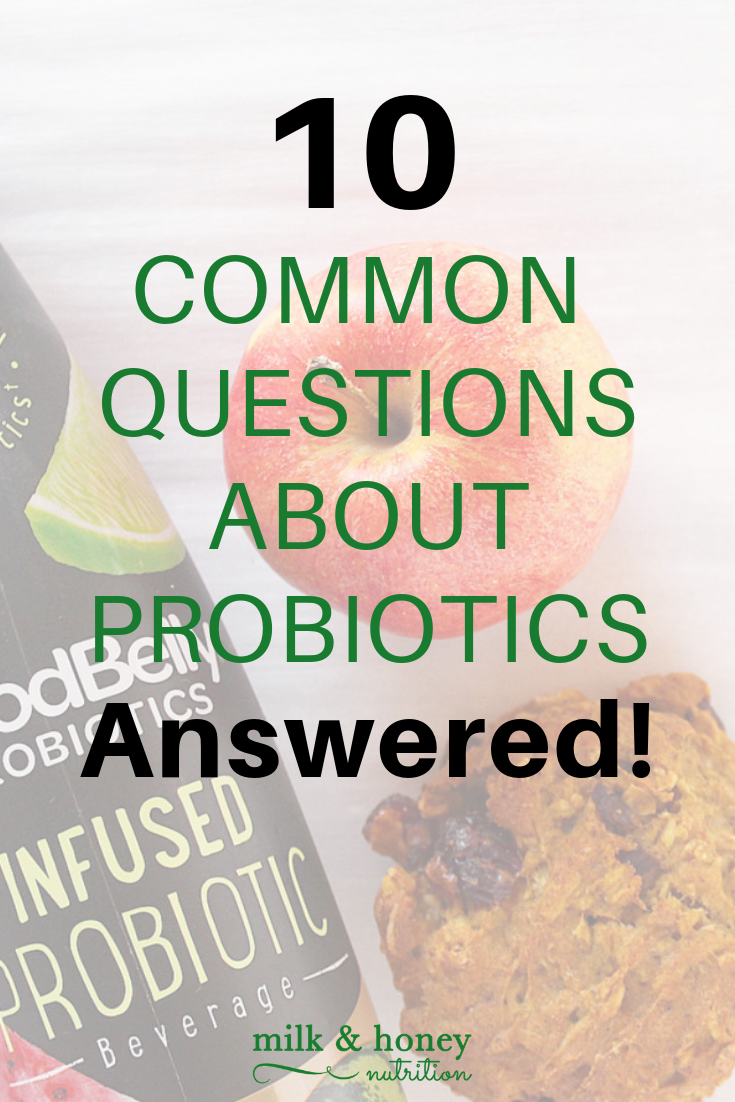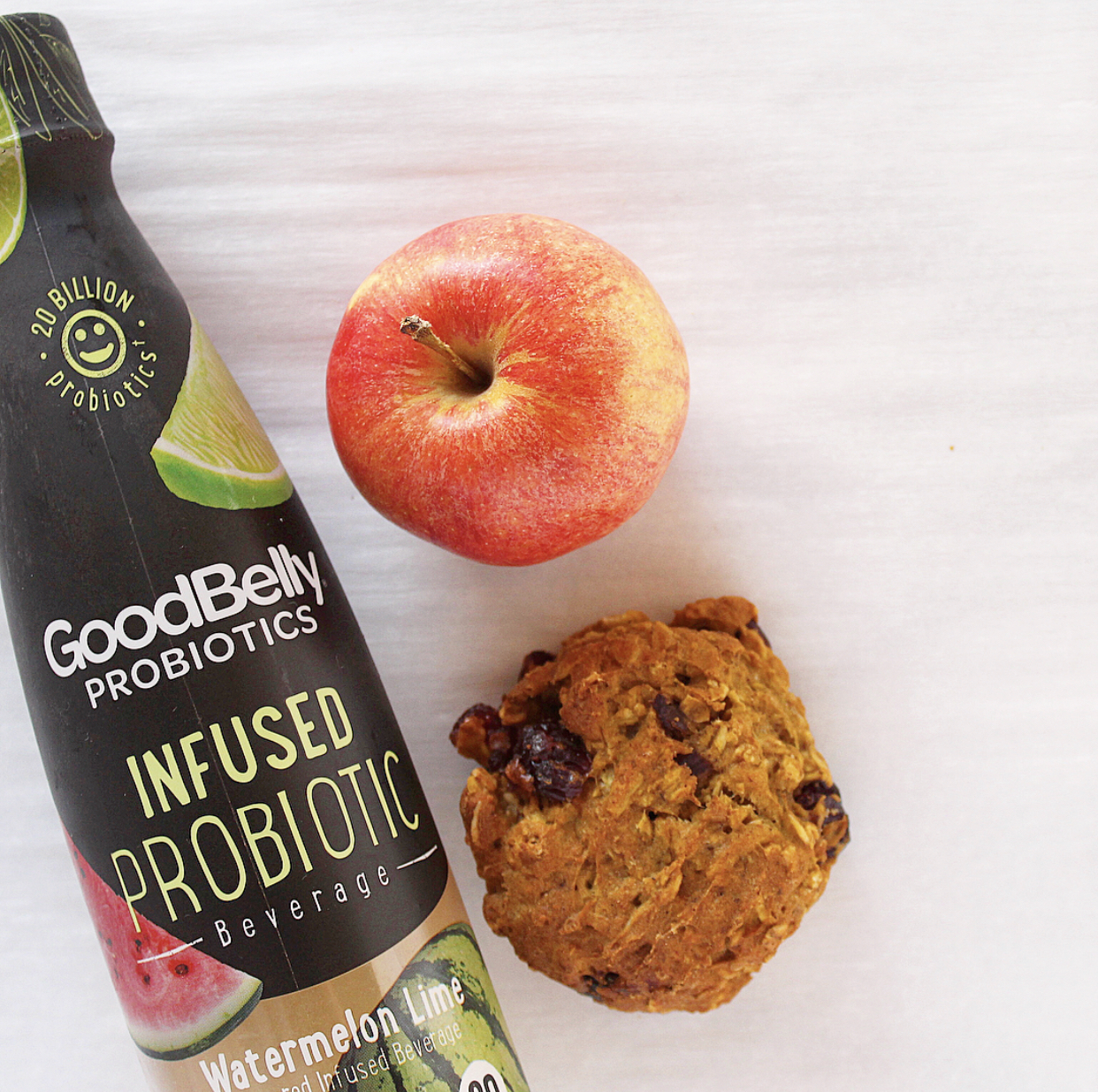
This article on The 10 most common questions I get about probiotics is sponsored by GoodBelly Probiotics. All thoughts and ideas are my own.
It seems like everyone is on a probiotic supplement these days. Even my dog! (Yes, we give our dog a probiotic. Google it. It’s a thing, I promise. Anyways…) Probiotic use in the US alone has more than quadrupled from 2007 to 2012. Now that probiotics have become a staple in the gut health and wellness communities, they are one of the most common things I get asked about. Before we dive into the 10 most common questions I get about probiotics, let’s review some of the common terms surrounding probiotics:
-
Microbiome: All of the bacteria, fungi, and other organisms that live in your body. (The “gut microbiome” refers to the organisms that live in your GI tract.) Over the last 10 years, research continues to support the theory that our microbiome, including the gut microbiome, is directly tied to certain diseases and health conditions. Thus, there seems to be an always increasing interest in manipulating the human microbiome to treat or prevent certain diseases.
-
Probiotics: Living microbes that provide a therapeutic benefit.
-
Prebiotics: Microbes that serve as food for probiotics and allow probiotics to grow or multiply. Many common foods in our diets contain prebiotic fiber: apples, bananas, oats, etc. Some research does show a benefit to consuming probiotics and prebiotics simultaneously.
-
Synbiotics: Combination of probiotics and prebiotics.
Source: Patel PJ. Singh SK, Panaich S. Cardozo L. The aging gut and the role of prebiotics, probiotic…
Whether it’s for yourself or your kids, keep reading for the 10 most common questions I get about probiotics… and the answers!
Want to add probiotics to your daily routine, but not sure where to start? Sign up for the GoodBelly 12 Day Reboot at www.goodbelly.com where you can also download a sweet coupon for some free GoodBelly products to help get you started!
What are probiotics?
Answer: Probiotics are microbes found in our GI tract that contribute to our overall health and risk for disease. A proper balance of probiotics has been shown to have positive health effects. Probiotics can be found in some foods, though the typical American diet is lacking in these foods, or in supplement form.
What do probiotics do in our bodies?
Answer: Probiotics take up space in our GI tracts. They feed off of existing bacteria (prebiotics and those we consume in food). Maintaining the right amount of probiotics in our GI tract can prevent bad bacteria from multiplying in our GI tract. Not only does the presence of probiotics physically prevent bad bacteria from growing in the GI tract (they literally don’t have enough room), it’s also believed that bad bacteria also don’t have enough food to feed off of because of the presence of probiotics. So basically, the probiotics take all the food from the bad bacteria 🙂 Some probiotics also secrete certain substances that have antibacterial properties and may be able to kill off unwanted bacteria. Source. There’s also some data to support that probiotics benefit our immune system but in different ways depending on the individual. This study found that in healthy people probiotics enhanced their immune system, but in people with over active immune systems (think: food allergies), probiotics helped decrease the activity of the immune system.
Who should take a supplement probiotic?
Answer: If you are having digestive issues or if you are on an antibiotic, probiotics may be very beneficial to you. There are many factors that may throw off the balance of bacteria in our gut. Aging, stress, sleep habits, medication, exercise, and diet are a few culprits. 70 percent of our immune system is also in our guts, so probiotics may be helpful for anyone looking for support with their digestive or overall health. (Though you should ALWAYS check with your individual health care provider before making any changes to your diet and supplement routine.) Babies as young as a few weeks old can take a probiotic. (Again, check with your physician first.)
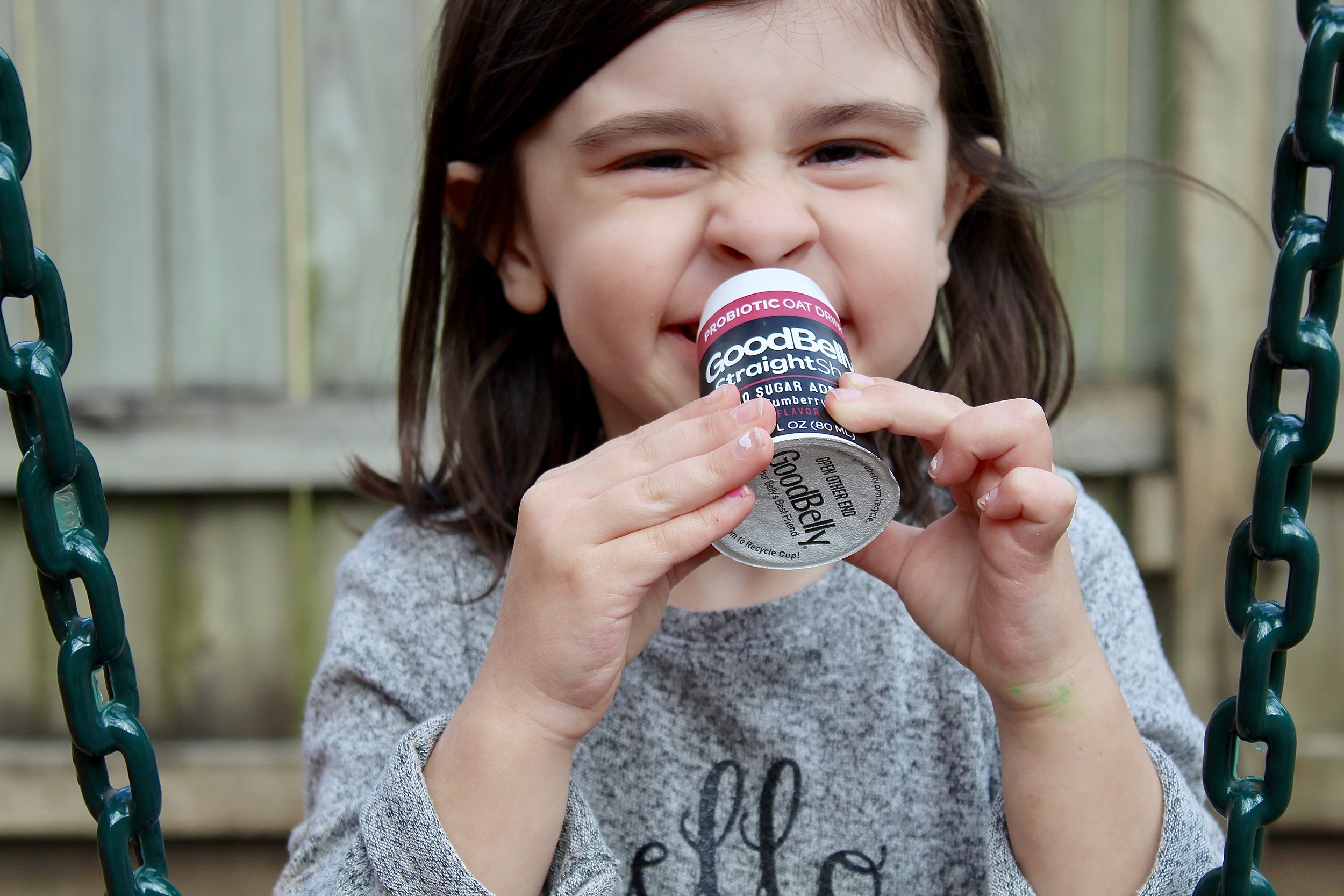
Which brands of probiotic supplements are the best?
Answer: This is such a tough question, and given the number of companies selling probiotic supplements, it’s also a hot issue for many people. (And just going to address the elephant in the room, some of you reading this may even sell probiotics from a certain direct sales company.) Rather than naming specific brands, I’ll tell you what to look for when deciding. (And quite honestly there’s no way for me to know all of the brands out there, so naming names would just falsely assume I knew all of the brands to choose from.) Things to consider:
-
When you are looking for foods or beverages with probiotics, remember that in order to be called a probiotic, or to say a product contains probiotics, on a food label- a company must provide scientific evidence that the bacteria can survive the difficult journey through the stomach and make it to the intestines.
-
Everything from transport, to temperatures, to processing can impact how effective a probiotic supplement is. Make sure you choose a commercially available brand that cites scientific studies proving the probiotics viability.
-
I prefer probiotic foods and beverages made with bacteria that are named on the label. This allows the consumer (aka, YOU) to research that particular strain and know what levels are needed to be effective, the potential benefits of that strain, etc. For example, if a product (like GoodBelly) uses the LP299V strain, you could look it up and see that that particular strain has been studied in over 50 human clinical trials, and has an increased ability to survive the acidic environment of the stomach, making it safely to the intestines. (It was first studied in Sweden and found to help GI surgical patients recover quicker.)
-
Look for products that list the number of probiotics you will get in a serving. If it isn’t listed, they likely aren’t testing their products.
-
Regardless of the brand you choose, I do reocmmend choosing more than one brand/product/variety and rotating month to month. It’s important to expose your GI tract to different types of probiotics.
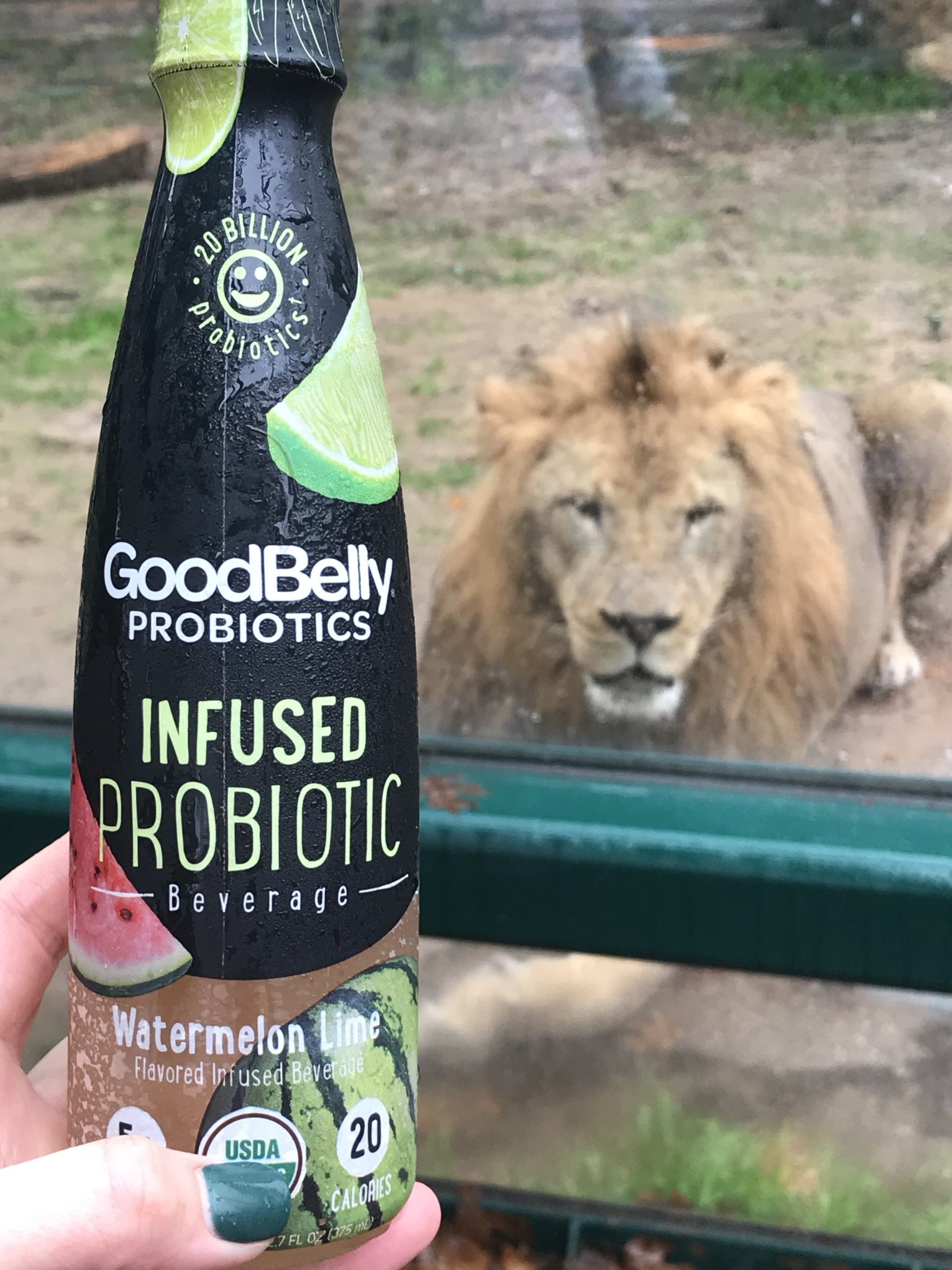
How many/much probiotics should you consume each day?
This varies greatly person to person and should be discussed with your physician and/or dietitian.
Is it possible to consume too much probiotics?
As with any food or supplement, over consumption is possible. Most of the time, this will present as diarrhea or constipation depending on the particular strains of probiotics that were consumed.
(Personal anecdote: When my youngest daughter was about 18 months old, we were giving her a probiotic that came in the form of chewable tablets. I was given some samples at a conference I went to so we were using those instead of a bottle that had a child safety lid. I absentmindedly left the packet out on the counter. Well, girlfriend managed to sneak into the kitchen, use her stool to climb on to the counter, and ate the four remaining tablets that were in the packet! And let’s just say her over consumption symptom was most definitely not constipation! We of course were freaking out once we realized what she had done, called poison control, etc. and they assured us she would be fine.)
How can I increase the amount of probiotics I consume?
This is simple. I usually try adding a food or beverage that has had probiotics added to it in production. Some of my favorite probiotic beverages are the GoodBelly Infused Probiotic Beverages, and my girls love their no added sugar StraightShots!
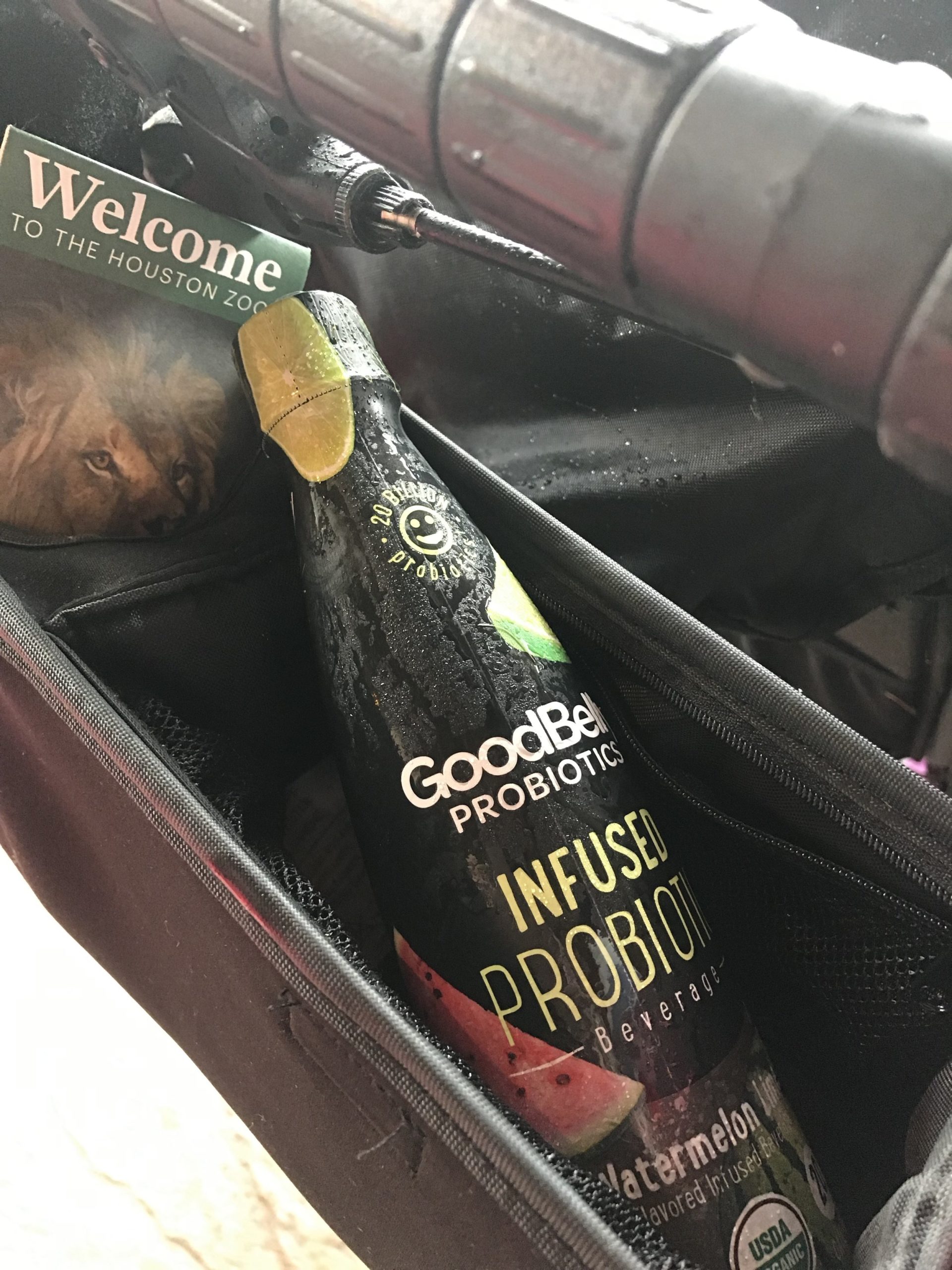
Do my kids need to take a probiotic?
“Need” isn’t necessarily the right word here, but assuming a pediatrician has said it’s ok, adding probiotics to a child’s diet can help both a child’s GI tract and their immune system. Remember 70 percent of our immune system is in our guts, so as little ones head back to school and are bombarded with germs, probiotics may give them some additional support. Also, if kiddos are on antibiotics, then probiotics can be incredibly helpful as antibiotics really throw off the balance of bacteria in your gut. Just remember, always take your probiotic two hours before or after the antibiotic to give it the opportunity it needs to survive.
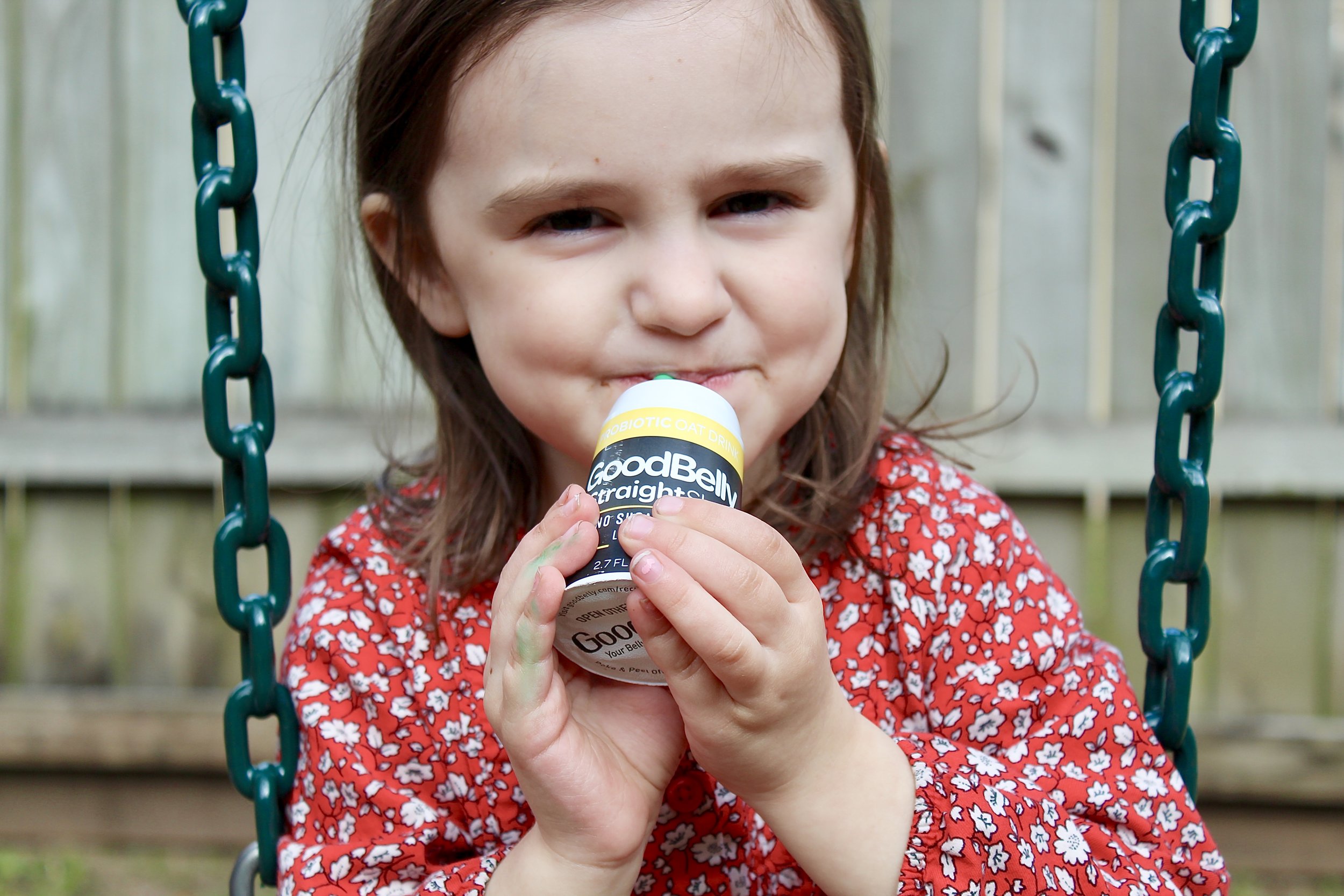
What if I can’t refrigerate my probiotics? (vacation, etc.)
One of the hottest food trends right now is shelf stable probiotics. If you are planning to travel and regularly take a probiotic that requires refrigeration, consider using a shelf stable option while on the road. Make sure to read the storage instructions on the supplement label or.
Want to add probiotics to your daily routine, but not sure where to start? Sign up for the GoodBelly 12 Day Reboot at www.goodbelly.com where you can also download a sweet coupon for some free GoodBelly products to help get you started!

